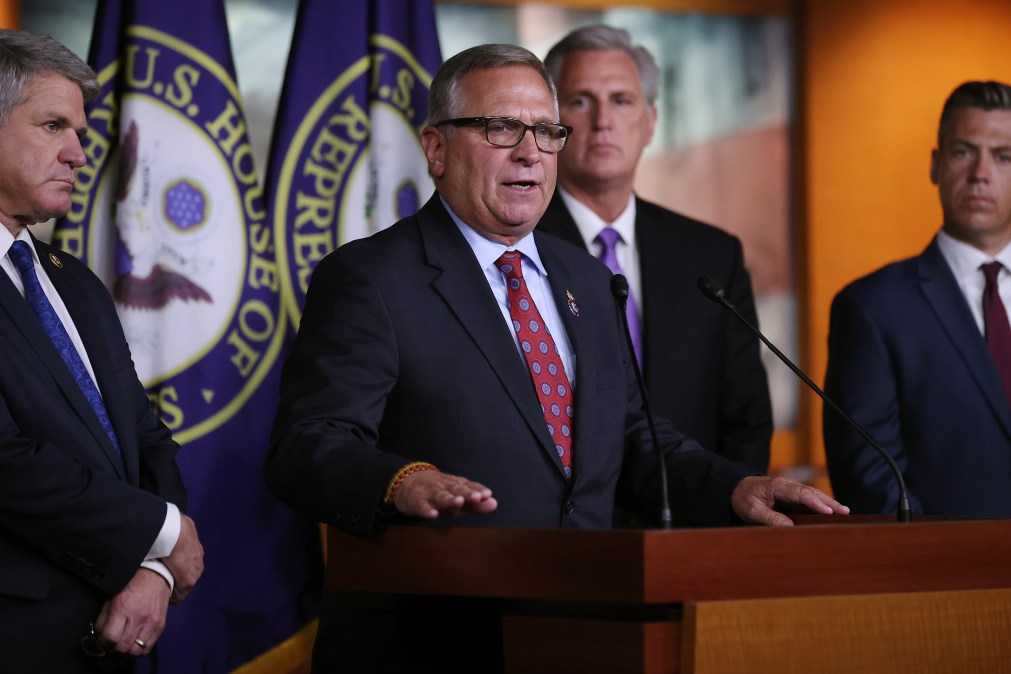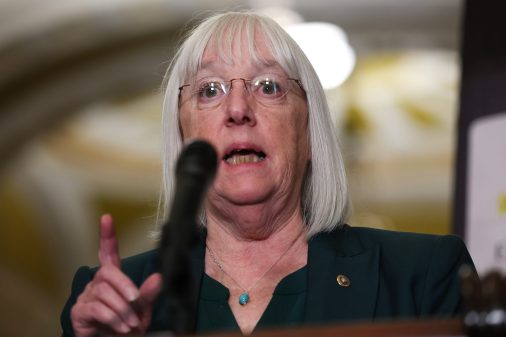House VA Committee advances multiple bills focused on agency modernization

The House Veterans Affairs Committee advanced a series of bills Wednesday aimed at modernizing technology at the VA.
At least three bills related to the VA’s technology infrastructure advanced out of committee, but not without pushback from some Democrats.
One of those bills was the Veterans Affairs Distributed Ledger Innovation Act, which directs the VA secretary to evaluate how the agency can use distributed ledger technology to improve accountability in claims management and the allocation of benefits.
“The VA runs on a patchwork of decades-old legacy systems, which are slow, inefficient and prone to security vulnerabilities,” Rep. Nancy Mace, R-S.C.,the bill’s lead sponsor, said during the markup. “These systems often stand in the way of veterans receiving their benefits in a timely manner.”
The VA study would explore how blockchain and similar technologies can prevent fraudulent claims and improve the traceability of veterans’ benefits claims by recording steps. Advocates argue that distributed ledger technology can make government processes more efficient and transparent, especially when large datasets are involved.
“Blockchain technology creates an unchangeable, auditable trail of interactions. It’s timestamped and tamperproof, decentralized and secure and authenticity can be verified instantaneously,” Mace said.
Rep. Mark Takano, D-Calif., the committee’s ranking member, took issue with the bill’s current language, citing concerns that it “may accelerate the VA’s involvement in an unvetted technology.”
Takano introduced an amendment that would require the study to explore blockchain’s benefits, but also its “security vulnerabilities, data privacy concerns, or undue pressure on an already constrained OIT workforce.”
The California Democrat noted his amendment does not mean distributed ledger technology cannot exist at the agency, but rather adds regulations for its government use.
“Ultimately, many of the bills on today’s agenda seem to be pushing forward modernization efforts without performing the legwork to ensure that VA’s workforce and systems are able to handle such efforts and that the necessary support structures are in place,” he said.
Committee Chair Mike Bost, R-Ill., disagreed with Takano, arguing the amendment would “put roadblocks on implementing this technology before it’s even been studied.”
Takano’s amendment ultimately did not pass.
At another point in the markup, lawmakers clashed over Michigan GOP Rep. Tom Barrett’s Forcing Real Accountability for Unlawful Distributions Act. If passed, the bill would direct the VA to obtain a system to monitor third-party payments from community care providers to prevent inaccurate or misleading claims.
Barrett, who chairs VA’s subcommittee on technology modernization, offered an amendment to expand the purpose of the system to detect “waste, fraud and abuse” in all Veterans Health Administration programs.
Bost supported the amendment, stating the VA has “ineffective and broken fraud monitoring systems.”
“Without modern tools in place, the VA cannot ensure taxpayers’ investments are spent properly,” he said.
But Takano and Rep. Maxine Dexter, D-Ore., voiced concerns about the bill’s use of the VA’s franchise funds, which are revolving funds used for administrative services across the agency. Takano’s amendment eventually failed.
The House panel also advanced the Modernizing All Veterans and Survivors Claims Processing Act, introduced by Rep. David Valadao, R-Calif.
The measure would require the VA to develop a plan for providing automation tools for claims processing, including an automated letter-drafting tool for offices processing veterans’ pension claims and survivors’ benefits claims.
Valadao’s office pointed out that the VA has used some AI tools for drafting letters and gathering documents for disability claims, but the tools have not been extended to other types of claims, leading to long delays.






